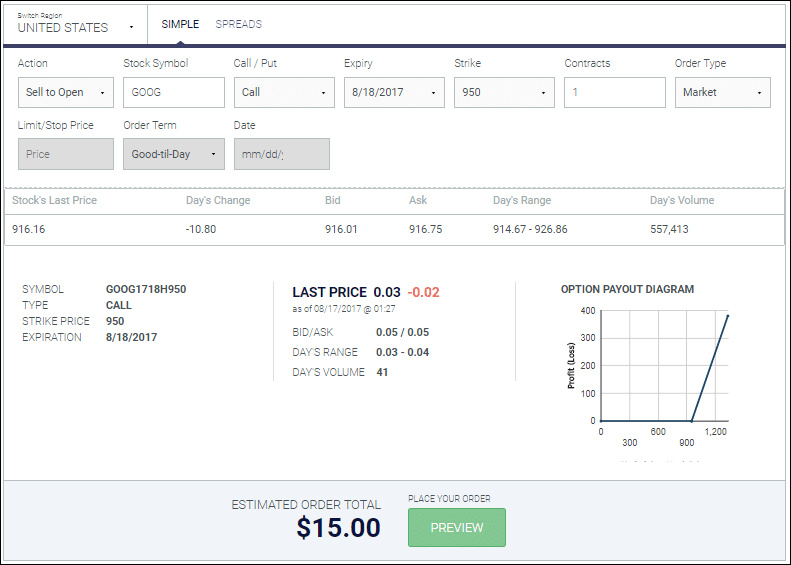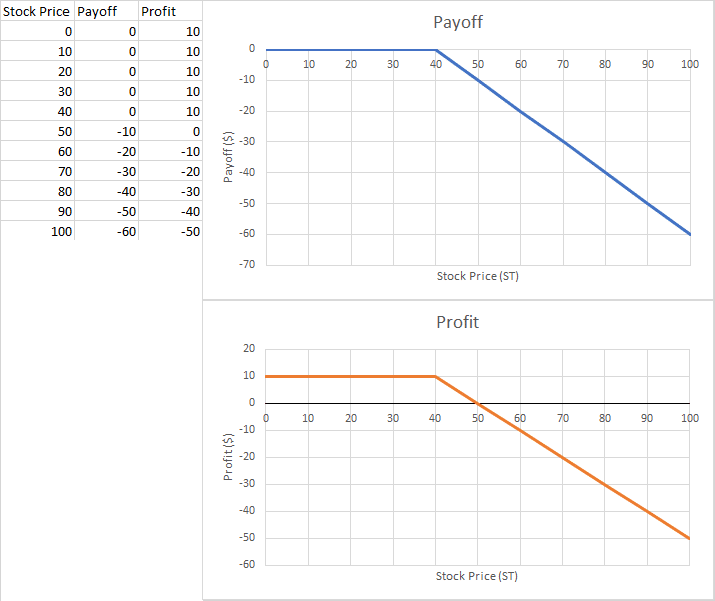Recall that a call option is a contract where the buyer has the right (not the obligation) to exercise a buy transaction at a specific strike price at expiration date. A short call is a term used when you sell a call option for an underlying asset.
A trader that has a short call option is also referred as a trader that wrote a call option. This means that the trader wrote this option contract with a belief that the buyer of the contract will not exercise it. If this happens, the writer will pocket the premium from selling the contract. If the buyer of the call option does exercise his right, the writer will have to sell him the shares, with respect to the specifications of the contract. In other words, a call option writer has an obligation to sell shares of the underlying asset, contingent on the buyer’s decision to exercise his rights.
In the world of trading, a short position on a call option (“sell to open”) means that you sold a contract that gives the buyer of that contract the right to buy the underlying asset at a specific price at a maturity date. If the buyer decides to exercise his right, you are obligated to provide him the shares with respect to the requirements that you have both agreed upon. It is important to note that the seller of a call option has no exercising rights. Thus, the only way to close this option contract would be to “buy to close” or cover the contract in question.
What are its components? Can you show me how to short sell a call option?
The components of a short call are quite simple. You simply need to perform an order to sell to open an option contract based on your desired specifications:

When and why should I have a short call?
You should short a call option if you expect the stock price to remain below the strike price. In a situation where the stock’s price is below the strike price, you will be able to gain the premium, since the buyer did not exercise his right. Evidently, writing a naked call (without being the owner of the underlying asset) can be very risky should the price surges beyond the strike price. Traders write options to implement it to certain strategies that will be discussed later.
What does it look like graphically? What is the payoff and profit graph?

What is the break-even point?
